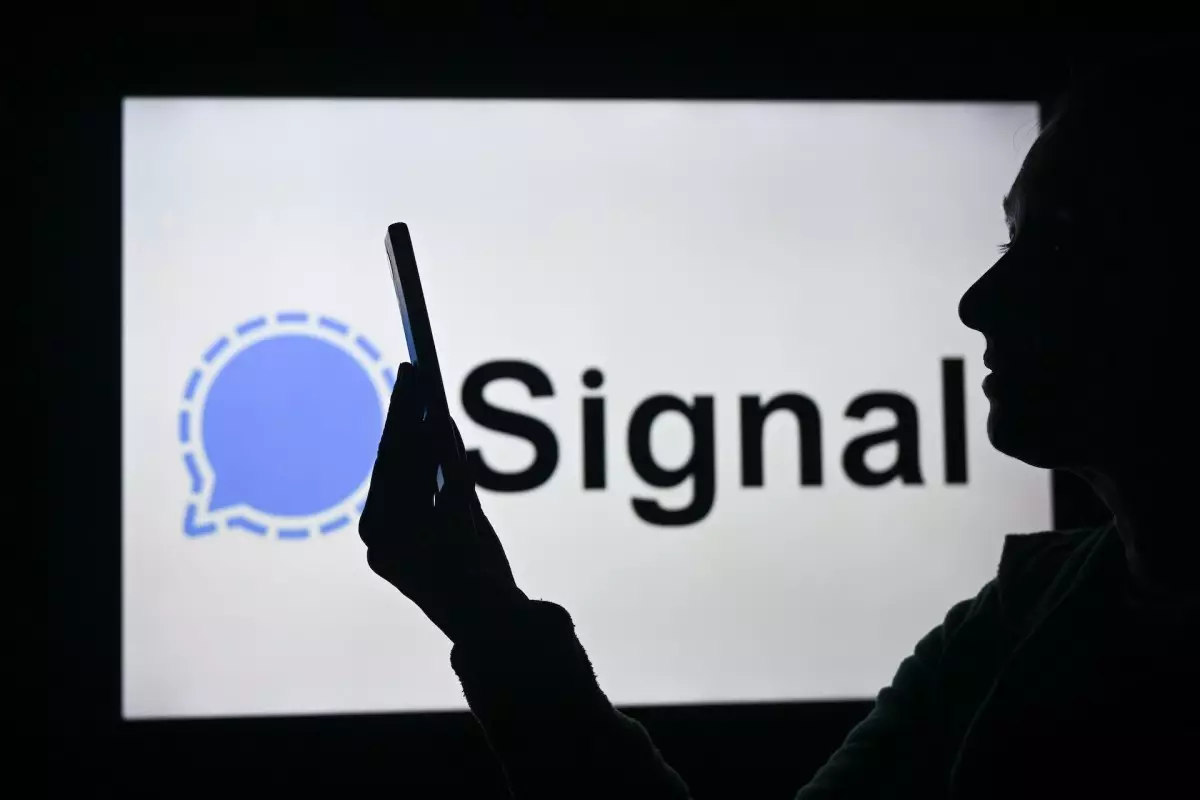In the realm of messaging applications, few have garnered the attention and user base that Signal has achieved, especially in recent months in the Netherlands. This dramatic rise represents not merely a preference for an alternative platform but a broader societal shift towards valuing digital privacy. Signal, a messaging service that prioritizes user confidentiality and transparency, is flourishing as many users reconsider how their private information is stored and shared.
The recent spike in downloads of the Signal app within the Dutch app stores, where it has frequently topped charts, is emblematic of a growing collective consciousness regarding digital privacy rights. According to data from various tracking services like Sensor Tower, the app saw an extraordinary increase in downloads from December 2024 to February 2025 — a spike of nearly 958%. This remarkable escalation has not gone unnoticed; Signal’s leadership attributes much of this growth to an increased awareness of privacy issues, coupled with rising distrust towards larger tech companies.
Often, crises and shifts in the socio-political landscape act as catalysts for changes in consumer behavior. In this particular instance, recent political developments and concerns about the influence of major U.S. tech firms have incited a keen interest in privacy-preserving alternatives. The tone of public discourse around these technologies has become markedly more critical, leading many users to seek out pathways to safeguard their communications.
Signal’s ascent in the Netherlands can, in part, be linked to a pervasive distrust of traditional tech giants, such as Meta and others. Public scrutiny surrounding data privacy breaches and corporate investigations into these organizations has undoubtedly shaped consumer preferences. The skepticism surrounding these corporations, compounded by global political shifts, serves as fertile ground for apps like Signal to thrive.
During an interview with Dutch newspaper De Telegraaf, Signal’s President Meredith Whittaker noted a factor of 25 increase in new registrations within the Netherlands as a clear indication of this shift. The public’s growing awareness of how their data is utilized, along with the imperative to decouple from monopolistic platforms, speaks volumes about the evolving landscape of digital communication.
In discussing public interest, Rejo Zenger from Bits of Freedom emphasized that the Dutch people are now participating in higher-level discussions about digital sovereignty and reliance on U.S.-based platforms. This is a stark departure from past considerations where choices were simply made based on app functionality or brand loyalty.
The contrast in growth patterns across European countries is striking. While the Netherlands experiences burgeoning interest in Signal, neighboring countries such as Belgium, Sweden, and Denmark have seen significantly lower increases in user adoption. This discrepancy is thought to be attributed to unique cultural and societal factors in the Netherlands that are creating an environment ripe for alternative communication solutions.
The comparative analysis highlights the Netherlands as a beacon in the emerging trend of privacy-conscious messaging. As many European governments start to reconsider their approach to digital privacy—a product of political climates and new legislation—the public’s response offers insights into broader continental trends.
The pervasive influence of mainstream media cannot be understated. In recent months, Dutch media platforms have intensified their critical coverage of Big Tech, particularly after heightened tensions from geopolitical narratives emanating from the U.S. This constant flow of information has made issues like data privacy more accessible to the average user, motivating even those previously indifferent to reconsider the solutions they were using.
Vincent Böhre from the Privacy First organization remarked on the increased media scrutiny directed toward tech giants and the ensuing shift in public opinion. This shift is marked by an increasingly proactive stance toward considering privacy-friendly options such as Signal, even among users who had previously exhibited little interest in such matters.
An informed population is more likely to disrupt the status quo in digital communications, which explains Signal’s meteoric rise in downloadable numbers in a relatively short span.
What remains significant in the discussion surrounding Signal is not merely its rise as a messaging app but as part of a broader movement advocating for user privacy in an increasingly digital world. As new laws confront digital encryption and governments lean toward compromising user privacy in favor of security, Signal’s commitment to maintaining its core principles will become increasingly critical.
Whittaker’s firm statements about maintaining robust security measures present Signal as an unapologetic proponent of digital rights. The choices users make today may well define the landscape of tomorrow, leading to a renaissance of privacy-respecting technology across Europe and beyond.
The burgeoning popularity of Signal in the Netherlands seems to signal not just a momentary trend but a profound awakening to the values of privacy and user autonomy. As society transitions into a new era of technological scrutiny, apps like Signal will play a pivotal role in shaping the future of secure communication.

